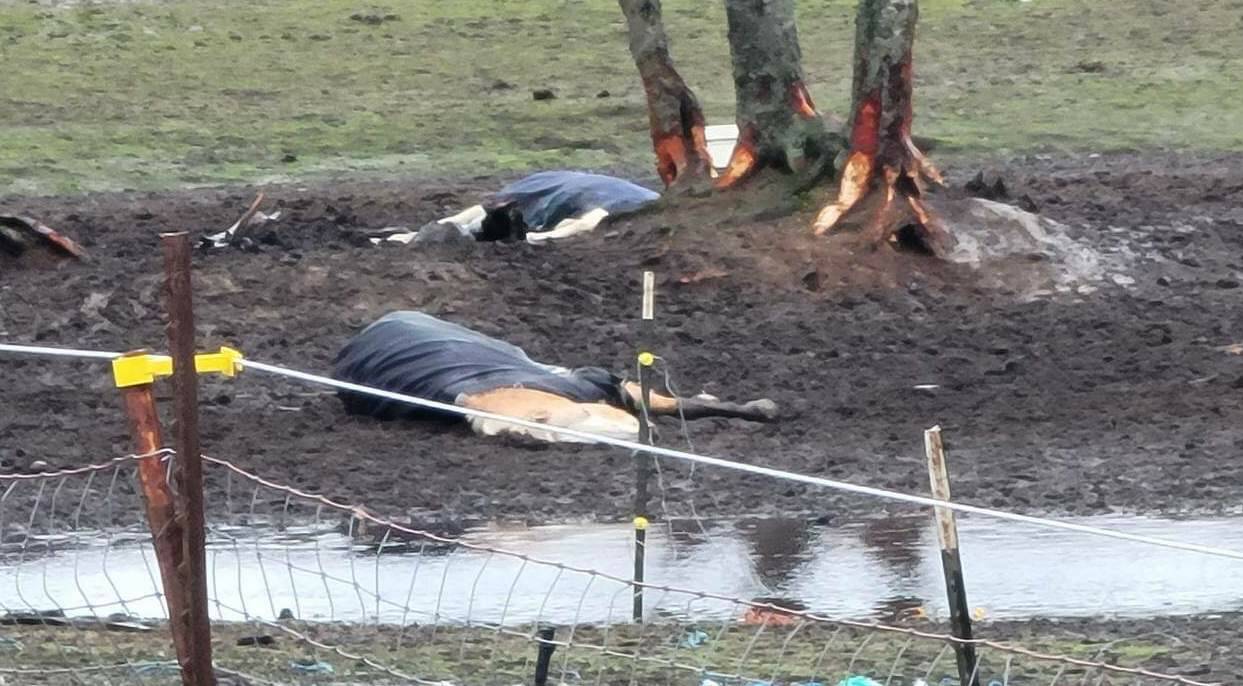In the wake of a startling animal cruelty case, the Island County sheriff said his department will be rebuilding an animal control program “from the ground up.”
In the meantime, the sheriff’s office investigation into the property owner allegedly responsible for the death of two horses and the mistreatment of other animals was completed Thursday and handed to the prosecutor’s office for a charging decision.
At an Island County commissioners’ meeting Tuesday, Sheriff Rick Felici responded to concerns voiced by a dozen residents over the state of the county’s animal control program, particularly the unfilled animal control officer position, insufficient rules about how animals should be treated and a lack of teeth for animal control enforcement.
Adrienne Bennett, a veterinarian and a neighbor of the property in question, said county rules governing animal welfare should be much more comprehensive and take into account a variety of factors for different types and breeds of animals.
“I definitely hope that these animals did not die in vain and we can make some changes,” she said.
Jerry Lloyd, a Central Whidbey resident and animal lover, said the county animal control department has long gone without necessary tools.
“If I had known how bad the code is here, I wouldn’t have retired here,” he said.
On Christmas Eve, deputies responded to a report from neighbors of a Hastie Lake Road property and found two horses that were dead and several others emaciated, as well as a whole host of other animals — pigs, rabbits, dogs, cats and chinchillas — living in unhealthy conditions. The sheriff’s office took possession of all the animals, expect some chickens and ducks, and brought them to safety.
The outrage was widespread in the community, as were the offers of help.
At the commissioner meeting, Felici commiserated with residents about the state of the animal control program. He explained that the county’s longtime animal control officer, Carol Barnes, retired a year ago and the office hasn’t been able to fill the position. The half-time animal control officer on Camano Island happened to quit at the same time as Barnes’ retirement and a replacement was eventually found.
Barnes worked in animal control for the county since 1984, with the job evolving over time. Felici said she was known for going above and beyond to help animals and teach people how to care for them. The position went from being an independent contractor to a county employee within the sheriff’s office in 2015.
In an interview, Felici pointed out that one of the biggest challenges facing his office and law enforcement nationwide is the difficulty recruiting new officers — and that extends to animal control positions. Felici said he’s had some interest in the job but that applicants have to pass the same background check and polygraph exam that prospective deputies do.
The position pays from $25.01 to $30.03 an hour, which could also be a factor.
“The county needs to increase the pay so that it can attract qualified people to this position,” Barnes said in an interview.
In addition, Felici said Barnes was so experienced and had so much institutional knowledge that county officials relied on her to handle animal-related issues on her own for decades. As a result, protocols and codes related to animal control didn’t develop as they have in other counties.
The sheriff said he requested animal control policies from other counties and found them to be helpful, including Snohomish County’s 60-page standard operation guidelines. He envisions an animal control officer who will be armed, unlike Barnes, but will follow her example of working with people to help them be compliant with animal welfare standards and other rules.
“We’re not as interested in fining people or bringing them into court,” the sheriff said, adding that compliance with the law and protection of animals is the ultimate goal.
Felici said he hopes to find the right person who can help bring animal control “up to modern standards.”
“The idea is to train people who will also be building the program,” he said.



